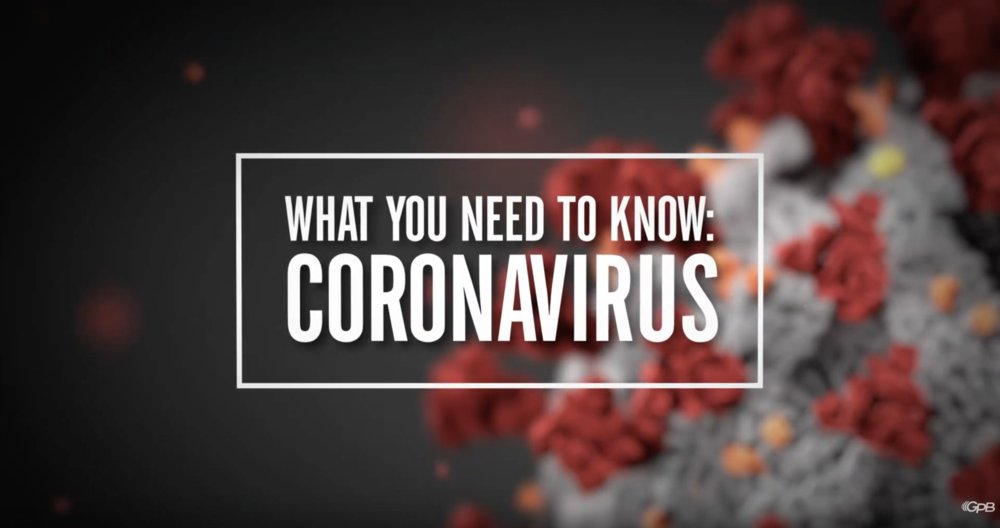Section Branding
Header Content
What You Need To Know: Dealing With The Threat of Domestic Abuse During Quarantine
Primary Content
Georgia Public Broadcasting’s new series What You Need To Know: Coronavirus provides succinct, fact-based information to help you get through the coronavirus pandemic with your health and sanity intact.
GPB Lawmakers host Donna Lowry spoke with Dr. Sally Goza, the president of the American Academy of Pediatrics, about the stresses of being at home with family for long periods of time.
Child abuse hotlines from across the country are reporting that their numbers are actually down right now. And I know you don't think that is good news, right?
So the number of calls going into child abuse hotlines being down is probably not related to the fact that children are not still being abused. What we know is that children are home right now. And so their protectors— the school people, the counselors, the people to see them and other places— are not seeing them as much. And so things may not be being noticed. So the bruises or the marks or the change of behavior that some of those people would notice is not being able to be noticed. These children may still be having trouble at home and children don't like to talk about it. They don't like to admit it. They're afraid if they do, someone won't believe them or that things will get worse if they tell. And sometimes it's just because they love the person who may be abusing them so much that they don't want to tell them.
And that's sad to say, but it's true. And then we've got the added stress that parents are worried about their jobs, they're worried about not working and they're all in a confined space.
Right. It's really a stressful time for all of us right now, Donna. People are being furloughed from their jobs. There's just a lot going on right now. We really need to be cognizant of that because with all of those pressures and then having the added pressure of your children at home with you 24/7 can really be a lot for families. So we need to be very cognizant of that. We need to help parents find things for your children to do that they love to do. Make sure that you're reassuring them and telling them that it's going to be OK, that things are going to be alright. They're going to do their best to protect them and answer their questions about what is going on. "Why can they not go back to school? What is this virus?" Try to get into that.
Sometimes we need timeouts. It's not only the children that need time out. Sometimes it's parents that need time out. So, if you're really stressed and what your children are doing is really getting onto your nerves, it may be time to find something to do. Take them out of your sight for a little while or at least out of your direct vision. Not totally out of your sight, but something to do that they can do on their own, where you can put yourself in a time out and have a little time to gather yourself.
I tell parents all the time when you see your child doing something that's annoying, really stop and in just a few seconds, ask in your brain, "Is it going to matter in an hour? Is it gonna matter in a day? It's gonna matter in a month or is it gonna matter down the road?" And if you say "no" to all of those things, you need to take that step back and not say anything because that's just going to give them attention for doing something that's annoying and they'll keep doing it.
So what you need to do is catch your children being good, catch them doing the things you like to do and go over and give them a lot of attention when they're doing those good things, those good behaviors, because then they'll do those to get your attention because children really want your attention. And that's what you have to remember. So while you're trying to work from home and your child wants the attention, try to have a conversation. But before you start trying to work, if they're old enough, say "Mommy's got to work right now. So here are some things you can do while I'm working" and try to make sure that you are giving that attention when you don't have to be working, when you have the time to give it to them so that they know it's coming and that they'll get that.
I think we forget to say something good when they're doing something good. I really do. I love the fact that now we're seeing in the news reports that teachers are getting out, getting in their cars, going down the streets trying to praise kids. Those kinds of things. I guess we need to do more of that. Maybe as neighbors, as friends, we do.
So if you know somebody who's under a lot of stress or kids are at home, they're laid off from their job or they're just even home from their job, let's reach out to our friends and family. Let's make sure we're talking to them or face-timing. If you have neighbors, go outside and stay in your own yard—that social distancing or physical distancing, six feet. You can stay six feet and be in it in your own yards and you can still have a conversation. You can still barbecue outside just in your yard and they barbecue in their yard and still share a meal together. So there are lots of ways we can still have that social interaction, which is so critical to everyone's well-being and health and mental health.
If you know somebody who's got a new baby they can't have the grandparents come over— and, crying babies can be very stressful— reach out to those new moms in your neighborhood or your friends that are new moms and FaceTime with them. Coo to that baby over the phone. Do all of that kind of stuff that you can. This is a time Americans need to come together. We need to take care of each other. We need to make sure we're all doing OK.
Visit healthychildren.org for more information on healthy living for families.


